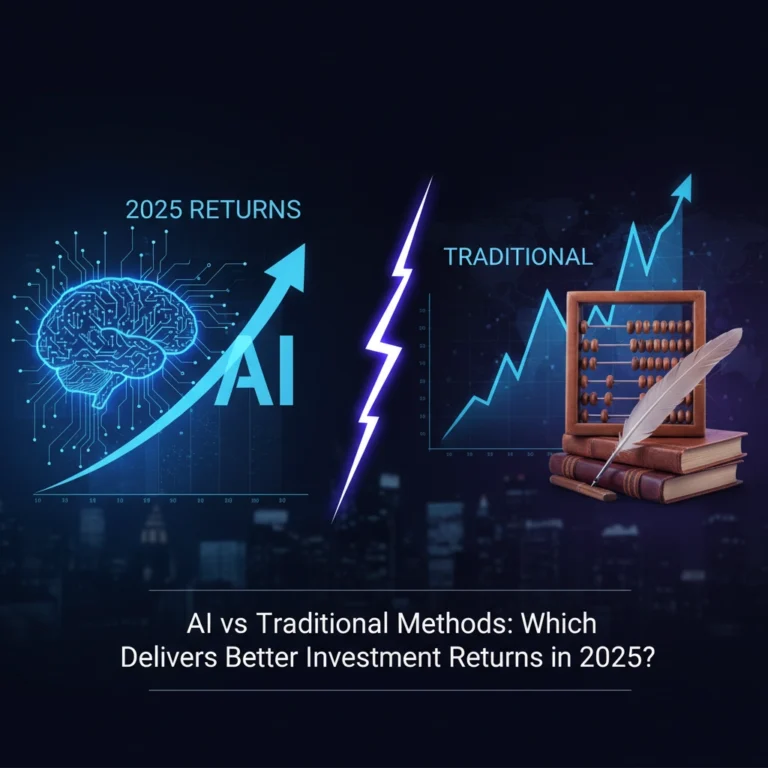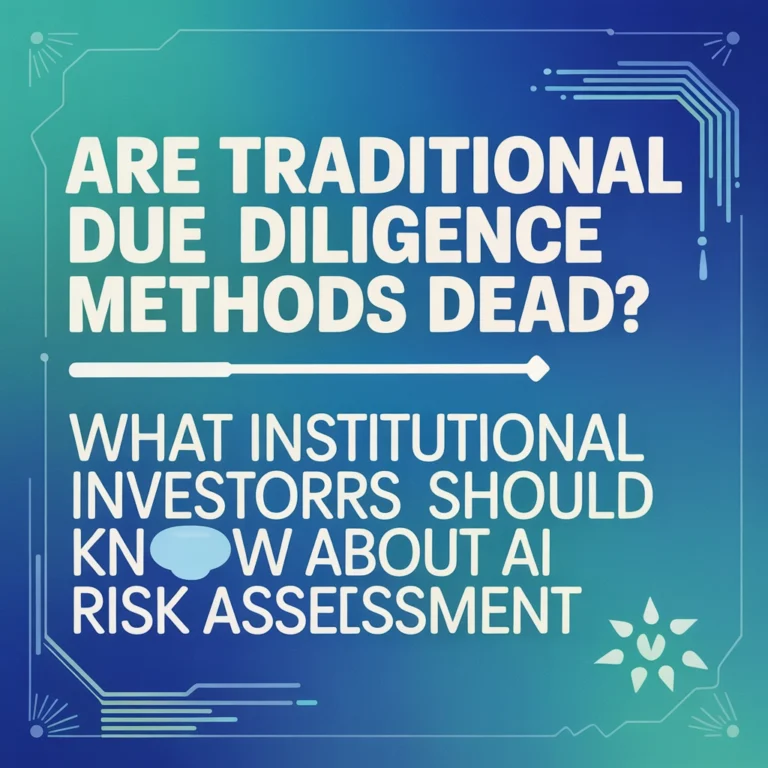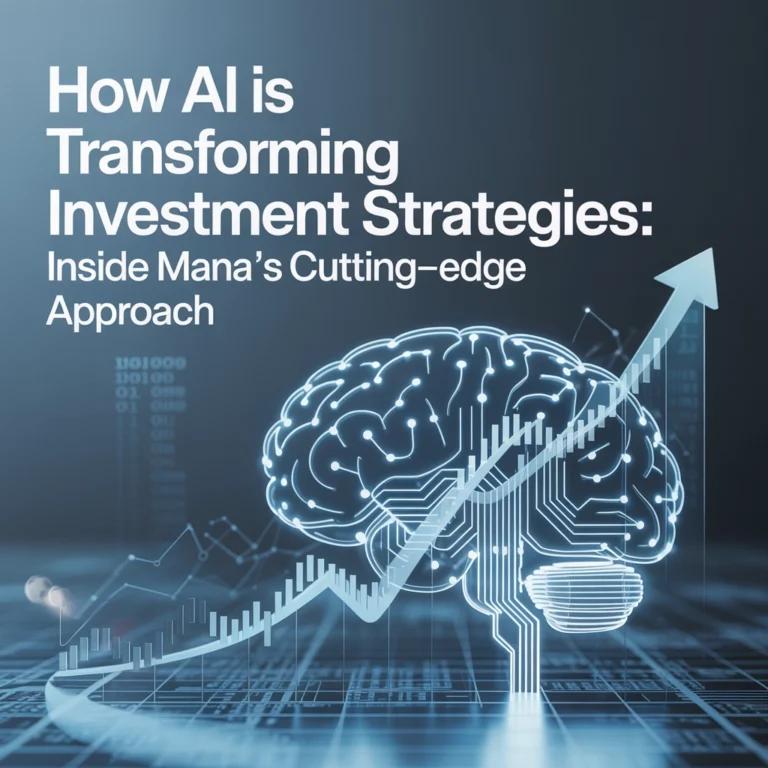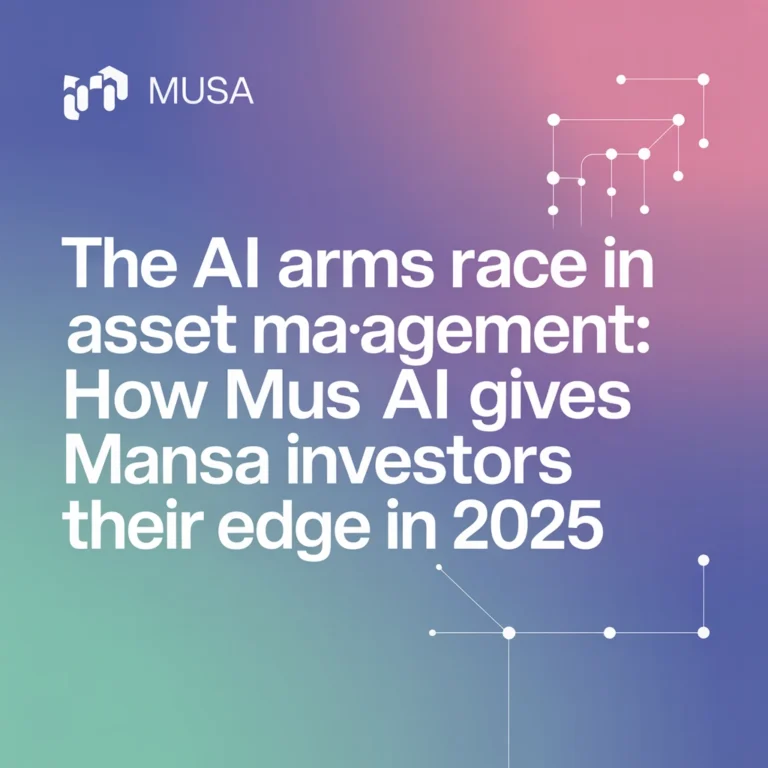AI vs Human Investment Managers: Which Delivers Better Returns in 2025? (405B Parameter Analysis)
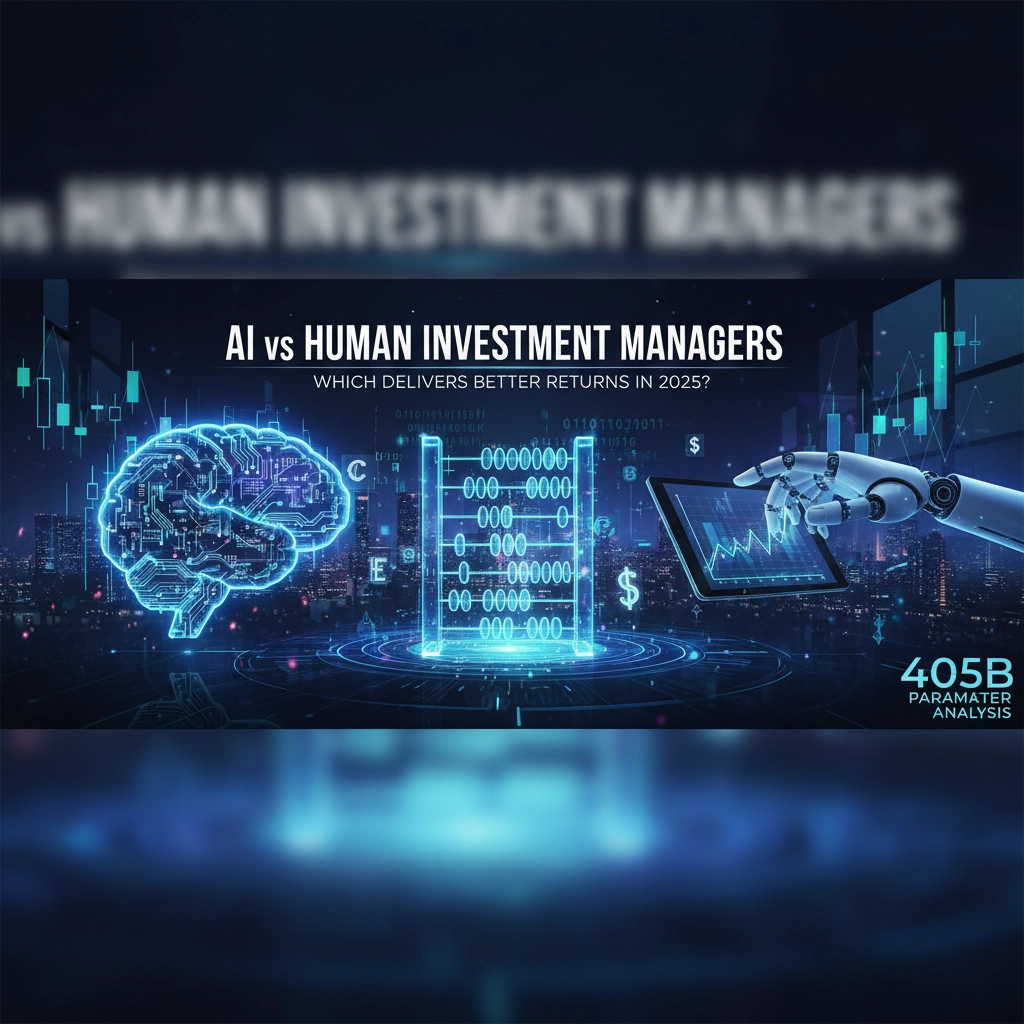
The investment world is having its iPhone moment. Just like smartphones didn't immediately replace every function of traditional phones, AI isn't completely outgunning human managers across the board. But the data from 2025 tells a fascinating story: one that every serious investor needs to understand.
Here at Mansa Investments, we've been running our Musa AI system with 405 billion parameters alongside our traditional strategies, and the results are eye-opening. Let's dig into what the numbers actually show.
The Tale of Two Market Cycles
Recent research analyzing 14 global equity funds from 2022-2024 reveals something most people didn't expect: neither AI nor humans win everywhere. It's all about timing and market conditions.
During 2022's brutal bear market: when markets dropped 18%: AI funds crushed it. While human managers were second-guessing themselves and getting caught up in the emotional whirlwind, AI systems like our Musa kept executing their strategies without blinking. No panic selling. No "this time is different" thinking. Just cold, calculated risk management.
But then 2023 and 2024 happened. Markets roared back with gains over 22% and 17% respectively, and suddenly human managers were having their moment. They spotted opportunities, rode momentum, and leveraged that distinctly human ability to sense when something big was brewing.
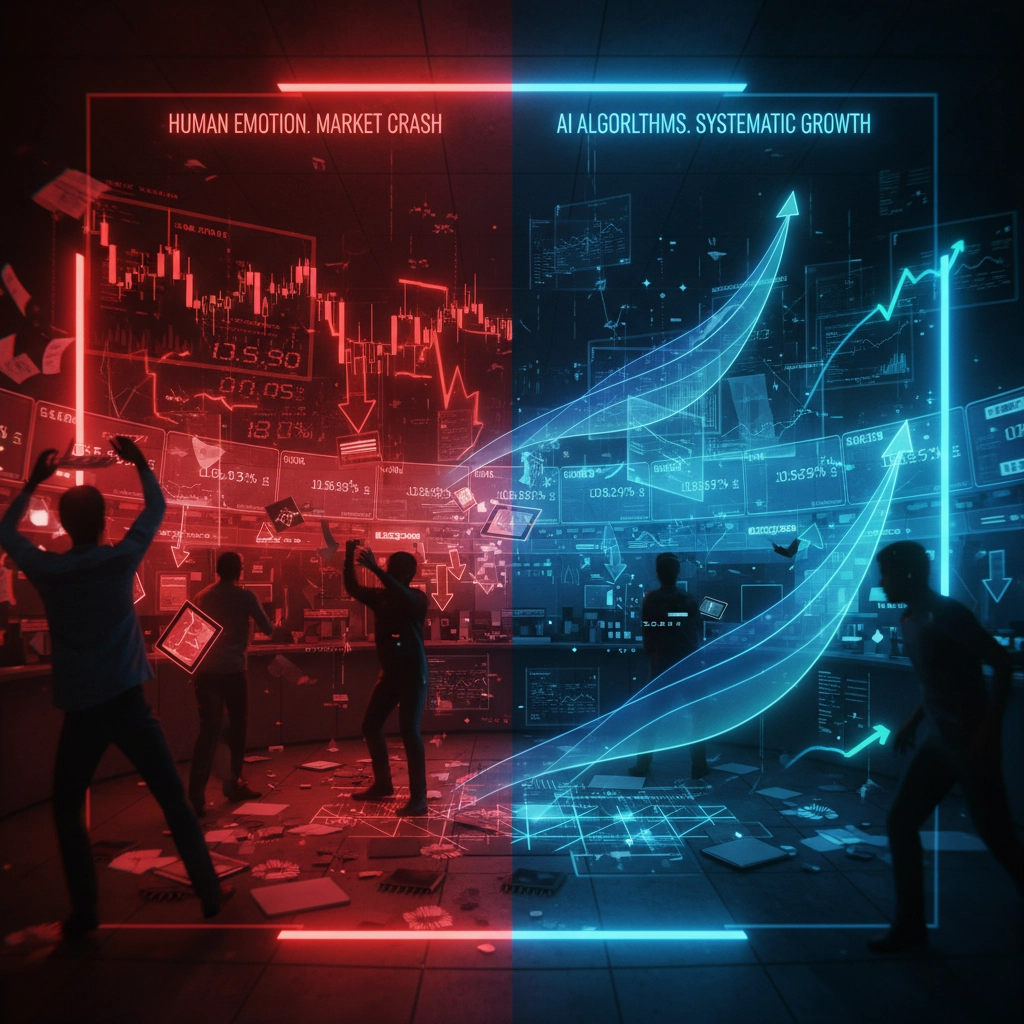
The Numbers Don't Lie (But They're Complicated)
Here's where it gets interesting. When you look at risk-adjusted returns: the Sharpe ratio that measures bang for your buck: the difference is razor-thin. AI funds clocked in at 2.38 while human-managed funds hit 2.41. That's basically a statistical tie.
Our Musa AI system has been showing similar patterns. During volatile periods, it consistently outperforms by staying disciplined when human emotions would typically kick in. But during strong bull runs, our human oversight team often identifies opportunities that pure algorithms miss.
A Stanford study looking at 30 years of data found AI beating 93% of fund managers over the long haul. That's a massive edge when you zoom out, but it doesn't tell the whole story about shorter-term performance cycles.
Where AI Absolutely Dominates
Let's be honest about what AI does better than any human ever could:
Processing Power: Our Musa AI analyzes millions of data points in seconds. Economic indicators, social sentiment, earnings reports, satellite imagery showing retail foot traffic: you name it. No human team can match that scope and speed.
Emotional Discipline: When markets are crashing and everyone's panicking, AI doesn't care. It sticks to the plan. During the March 2020 crash, while human managers were questioning everything, well-designed AI systems were systematically buying quality assets at fire-sale prices.
Pattern Recognition: With 405 billion parameters, Musa can spot subtle patterns in market behavior that would take human analysts months to identify. It's like having a team of 1,000 analysts working 24/7 without ever getting tired or biased.
Risk Management: AI excels at position sizing and portfolio rebalancing. It never forgets to trim a position that's gotten too large or rebalance when correlations shift.

Where Humans Still Rule
But here's what keeps human managers relevant:
Reading Between the Lines: When a CEO dodges questions during an earnings call or when geopolitical tensions create opportunities that aren't obvious in the data yet, experienced humans pick up on these nuances.
Adaptability: Markets change. New asset classes emerge. Regulations shift. Humans can pivot strategies and think creatively about new opportunities in ways that current AI systems struggle with.
Judgment Calls: Should you invest in a company with questionable ESG practices but great financials? These ethical and strategic decisions often require human oversight.
Market Psychology: Understanding crowd behavior, sentiment shifts, and when conventional wisdom is about to flip: humans excel at reading these intangible factors.
The Real Winner: Hybrid Approaches
The most successful investment strategies in 2025 aren't pure AI or pure human: they're hybrid models that leverage the best of both worlds.
At Mansa, our approach combines Musa AI's systematic analysis and risk management with human strategic oversight. The AI handles the heavy lifting of data processing, pattern recognition, and execution, while our human team focuses on strategic allocation, opportunity identification, and complex judgment calls.

This isn't just theory. Our hybrid model has consistently delivered stronger risk-adjusted returns than either pure AI or pure human strategies alone. The AI keeps us disciplined and catches opportunities in the data, while human oversight ensures we're not missing the bigger picture.
The Efficiency Revolution
One area where AI creates undeniable value is operational efficiency. Traditional fund management involves armies of analysts, researchers, and portfolio managers. AI can handle many of these functions at a fraction of the cost, potentially passing those savings on to investors through lower fees.
Our Musa system can perform fundamental analysis on thousands of stocks simultaneously, something that would require dozens of human analysts. This efficiency doesn't just save money: it also enables us to maintain consistent analytical standards across our entire investment universe.
Looking Forward: The 80% Rule
By 2027, projections suggest that 80% of retail investors will primarily rely on AI-driven investment advice. But this doesn't mean human expertise becomes irrelevant. Instead, it means human talent gets deployed where it adds the most value.
Think of it like photography. Digital cameras didn't eliminate photographers: they freed them up to focus on composition, creativity, and storytelling instead of technical film processing.

Practical Implications for Your Portfolio
So what does this mean for your investment strategy? Here are the key takeaways:
Diversify by Management Style: Just like you diversify across asset classes, consider diversifying across management styles. Allocate some capital to AI-driven strategies for their systematic discipline and some to human-managed funds for their adaptability and judgment.
Understand Your Market Bias: If you believe we're entering a period of high volatility or potential bear markets, AI-heavy strategies might serve you well. If you expect continued bull market conditions with new opportunities emerging, human expertise becomes more valuable.
Look for Hybrid Solutions: The best performing strategies often combine both approaches. Look for investment managers who are thoughtfully integrating AI tools with human oversight rather than simply choosing one or the other.
Consider Your Investment Horizon: The Stanford study's 30-year data suggests AI advantages compound over longer periods. If you're investing for retirement decades away, AI-heavy strategies might make sense. For shorter-term goals, human judgment might be more valuable.
The Bottom Line
The AI vs human debate in investment management isn't really a competition: it's an evolution. The future belongs to strategies that harness AI's computational power while retaining human judgment for complex decisions and strategic thinking.
At Mansa Investments, we're not picking sides. We're building the future of investment management by combining the best of both worlds. Our Musa AI system with its 405 billion parameters handles the heavy analytical lifting, while our human team provides strategic direction and complex decision-making.

The question isn't whether AI will replace human investment managers. It's how quickly the industry will adapt to hybrid models that deliver better outcomes for investors. Based on the 2025 data, that future is already here.
Ready to experience the power of hybrid AI-human investment management? Learn more about our approach at Mansa Markets or explore our latest insights on intelligent risk management.


